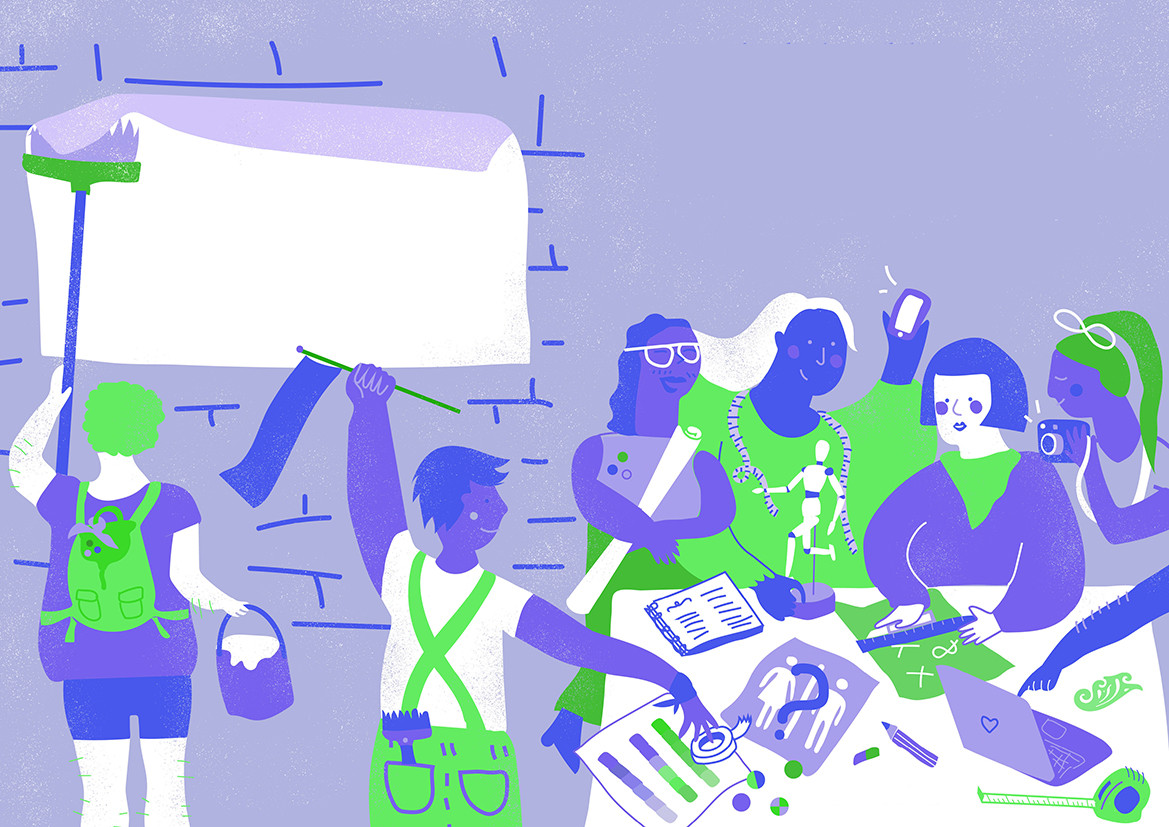Ober Maya
Space of Radical Possibilities, Toward Intersectional Feminist Design Pedagogies
In order to understand the shaping of design practice amidst a growing discourse on the politics of design, this project proposes to explore contemporary intersectional feminist design pedagogies. It focuses on three sites, namely: (1) the Chair of Design and Gender Studies at the Faculty of Architecture, Design and Urbanism (FADU), University of Buenos Aires (UBA), Argentina; (2) the Norm-creative MFA Programme in Visual Communication at Konstfack, Stockholm, Sweden; and (3) “Recreating a Women’s School” summer graduate course at the Communications Department, Pratt Institute, NYC, USA.These pedagogical approaches postulate design otherwise , defining design as an inherently political and socially transformative practice contributing to more just society (Ansari 2018; Abdulla 2018; Keshavarz 2017). Only recently has the lens of intersectionality been applied in the field of design education, despite serving for decades as an analytical tool and pedagogical influence in the Social Sciences (Crenshaw 1989; hooks 1994; Mitchell, Simmons, and Greyerbiehl 2014). Interestingly, these pedagogies have been emerging at a similar time at different locations globally, primarily in the second decade of the 2000s. Nevertheless, there has not yet been any study exploring this phenomenon, revealing how design education has responded to calls for decolonization, depatriarchization, and deprecarization and the rise of social movements such as BLM, the Women’s March, #Niunamenos, #QueSeaLey, #metoo, and others.
Situated interdisciplinary between Anthropology of Education, Design, and Gender Studies, “Space of Radical Possibilities: Toward Intersectional Feminist Design Pedagogies”* project aims at investigating ethnographically, how intersectional feminist design pedagogies operate and shape designers that then embed their practice of the otherwise, creating “other ways of worlding” (Escobar, p.65, 2018). Through a triangulation of participant observation, interviews, and visual and project analysis, I will explore how narratives of selves are created. I will focus on lived experiences through biographies of students and teachers, looking at them—following Chicana feminist scholar Gloria Anzaldúa—as “teorías-theories” that enable an understanding of their relation to the world, to teaching and learning, and to the creative, design process through particularities of their respective contexts (Anzaldúa 1987). What stories do the students and lecturers tell about their lives? How do these self-identities influence how they teach, learn, and produce design? And lastly, how do pedagogies in the classroom influence their future design practices?
*The title draws on bell hooks’ concept of the “classroom remains the most radical space of possibility in the academy” (1994, 12)
Keywords: design education, anthropology of education, gender studies, intersectionality, feminist pedagogies

Space of Radical Possibilities: Toward Intersectional Feminist Design Pedagogies


